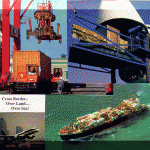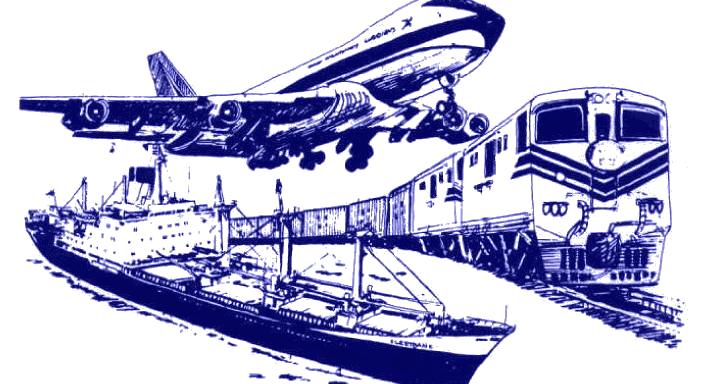 Risk Management in Supply- Chain
Risk Management in Supply- Chain
TRADE DISRUPTION INSURANCE
The effectiveness of Trade Disruption Insurance (TDI)
as a form of risk management in supply-chain security.
An Effective Solution Against Supply-Chain Security Risk.
Trade disruption insurance,(TDI) protects against loss of profits and extra expenses arising from an insured event in the assured’s supply chains. The uniqueness of TDI is that it will respond even if the assured’s property is not damaged, unlike traditional forms of insurance cover.
It is effective as a risk management tool by mitigating the effects of the threats to the organization’s critical paths and nodes (as well as the supply-chain overall).
The insurance cover protecting the supply chains from being blocked owing to an act, or by the order of the local or national authorities.
The insured events were defined as:
“Partial or total closure by the appropriate authorities or unintentional physical blockage of any berth, port, bridge, channel, canal, waterway, road or railway line … by, under, or by the lawful order of the police, local or national authority or government…” The insured events also included strikes, riots, civil commotion and malicious damage.
The policy is designed to respond to the insured event by paying the net loss which was defined as the assured’s net profit lost during the period of indemnity relating to that proportion of the insured’s revenue which is lost by the occurrence of an insured event provided such revenue was connected to a contract at the time of the occurrence of the insured event.
The policy is similar to the one above in that it also covered acts of strikes, riots and civil commotion as well as malicious damage.
However, the policy also includes:
“… physical damage or physical destruction to or at the scheduled ports and/or key transport infrastructure within a range of the scheduled ports directly caused by war, civil war, revolution, rebellion, insurrection or civil strife arising there from or any hostile act by or against a belligerent power.”
In addition, the policy covers:
“… Physical damage or physical destruction or Physical loss to or at the scheduled ports and/or key transport infrastructure within a range of the scheduled ports from: Fire, lighting, explosion, looting, natural phenomena, overflowing water courses, pipe breakage, flood, rain filtration, avalanche, landslide, weight of snow or ice, hail, wind, sea swell, sea quake, tsunami, sprinkler leakage, volcanic eruption, smoke, earthquake and/or fire following, storm, aircraft and/or objects falling therefrom, spontaneous combustion, vehicle impact, debris removal, collapse of buildings, subsidence, impact with fixed or floating objects including vessel impact, port blockage, spillage or general, bulk or IMO cargo.”
It is effective in insuring a company’s net profit and additional costs and expenses against the risk of an act of terrorism directed at the company’s supply chains, and as such is an effective form of risk management for supply chain risk managers.
Managing Supply-Chain Risk
The security risk assessment shall:
“… consider the likelihood of an event and all of its consequences which shall include physical failure threats and risks, such as functional failure, incidental damage, malicious damage or criminal action . . . operational threats and risks etc.”
The emphasis is on identifying all of the threats to the organization’s supply chains, not only the upstream and downstream threats.
The organization shall:
“… establish, implement and maintain appropriate plans and procedures to identify the potential for, and responses to, security incidents and emergency situations, and for preventing and mitigating the likely consequences that can be associated with them.”
Conclusion
Trade disruption insurance is unique among insurance products. It has been shown to be versatile in responding to events where no physical damage to property has occurred, and thus will respond where other insurance products do not. As a risk management tool for supply-chain managers, its importance cannot be underestimated.
Takis Kalogerakos
Marine Cargo Underwriter
takis@greenwoods.org www.greenwoods.org http://ourblog.greenwoods.org



